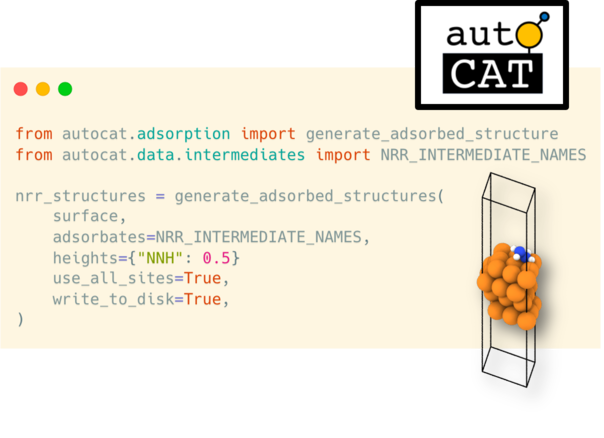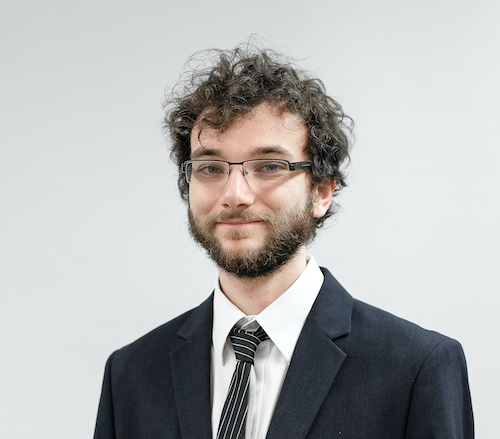High-throughput density functional theory calculations
With AutoCat, DFT-ready structures for heterogeneous catalysis studies (i.e., different surface terminations of crystalline solids along with the various adsorbed reaction intermediate moeities) can be generated in an automated fashion. Optionally, AutoCat writes these crystal structures to disk, organizing them into a standardized directory structure to ensure easy, systematized access and enable a uniform interface with DFT-in-the-Cloud software. Materials classes supported include mono-element slabs, and single-atom alloys. Defaults are available for the common electrocatalysis reactions in oxygen and nitrogen reduction.
In addition, AutoCat provides generalizable tools for closed-loop discovery of electrocatalyst materials. This includes defining a design space to search over, featurizing structures, training and making predictions, and selecting candidate systems based upon a desired acquisition function.

DFT-in-the-Cloud is a modular, extensible framework of open-source Python tools for on-demand DFT calculations. The packages within this ecosystem support multiple popular DFT softwares including Quantum Espresso, VASP, and GPAW (in development). In this project, we interface the DFT-in-the-Cloud tools with FireWorks, a computational job/workflow management software, and the combined setup can be packaged into containers (e.g., Docker-based) for complete reproducibility. The individual packages within this ecosystem are:
dftinputgen: generate input files for DFT codesdftparse: parse data from raw DFT output filesdfttopif: parse data from raw DFT output files into the Physical Information File (PIF) format, a general-purpose materials data schemapypif: interact with data in the PIF formatdftflow: construct and execute DFT calculation workflows (To be open sourced)
For the ongoing development of these packages to support GPAW for this project, see the forks on GitHub repositories here

People
Lance Kavalsky


